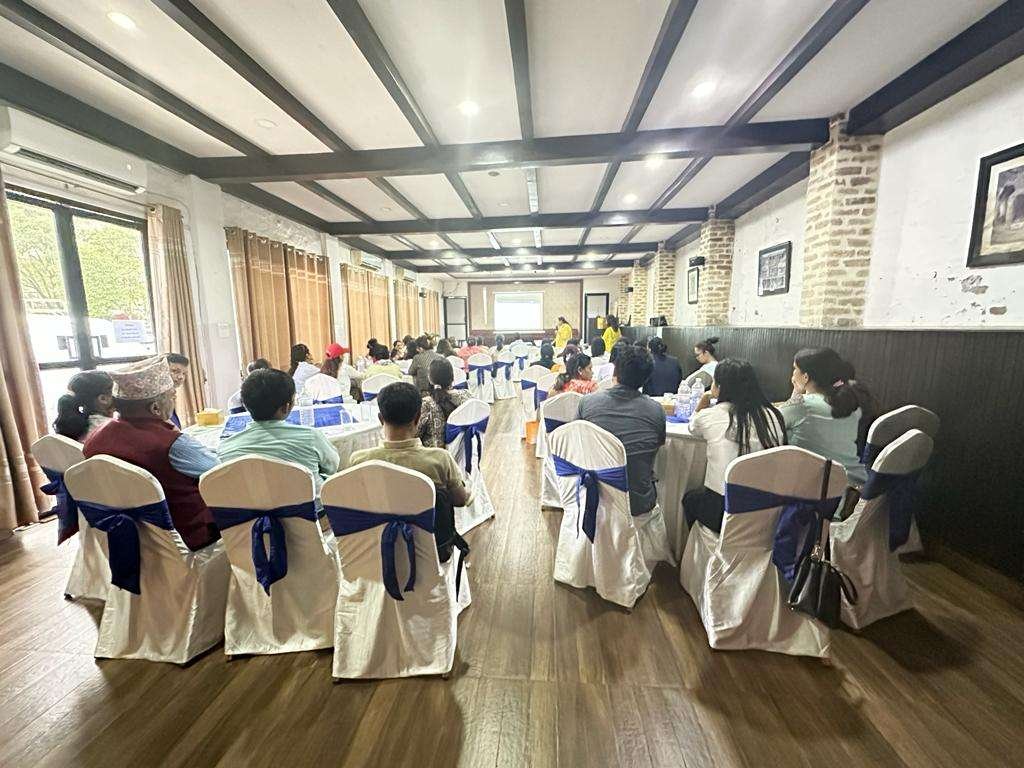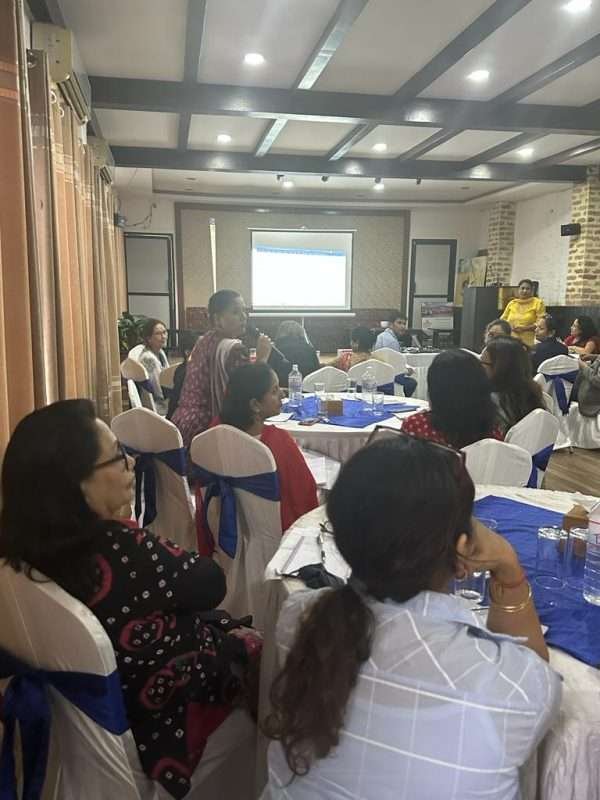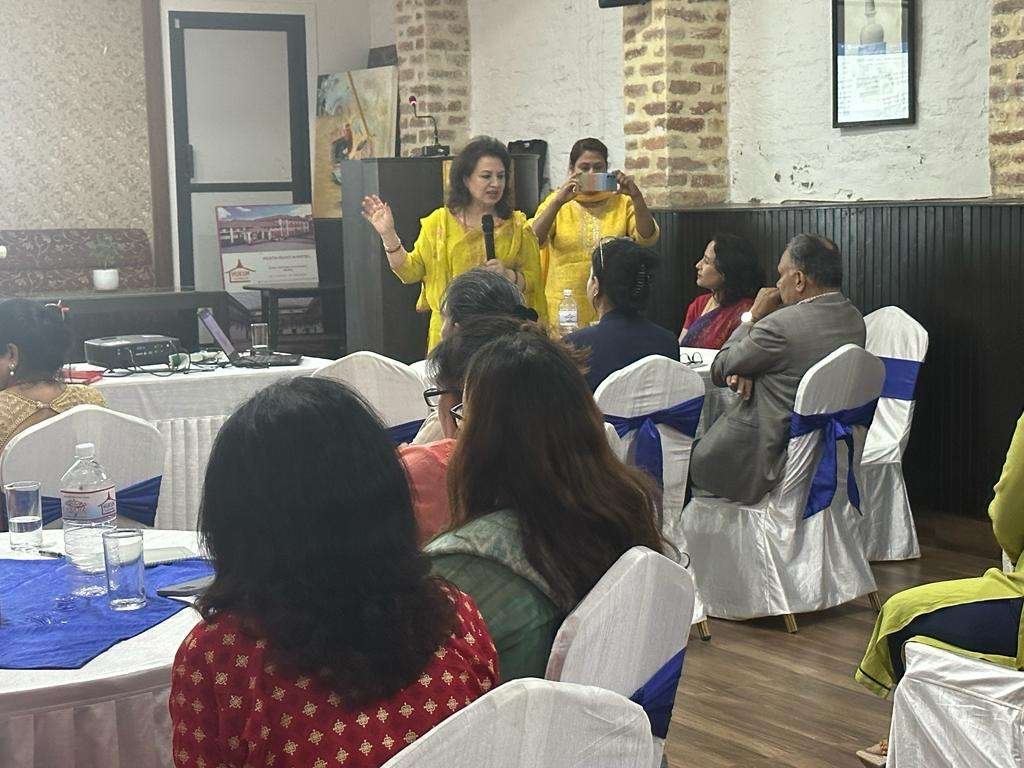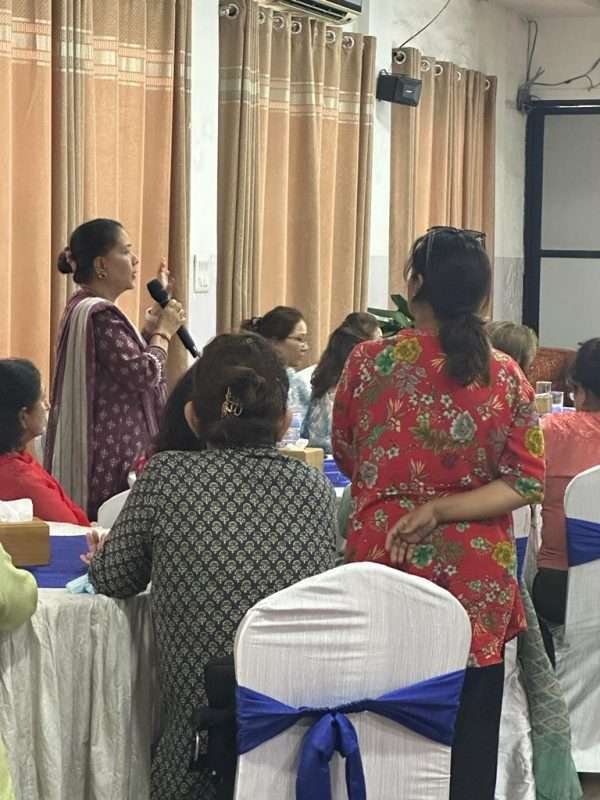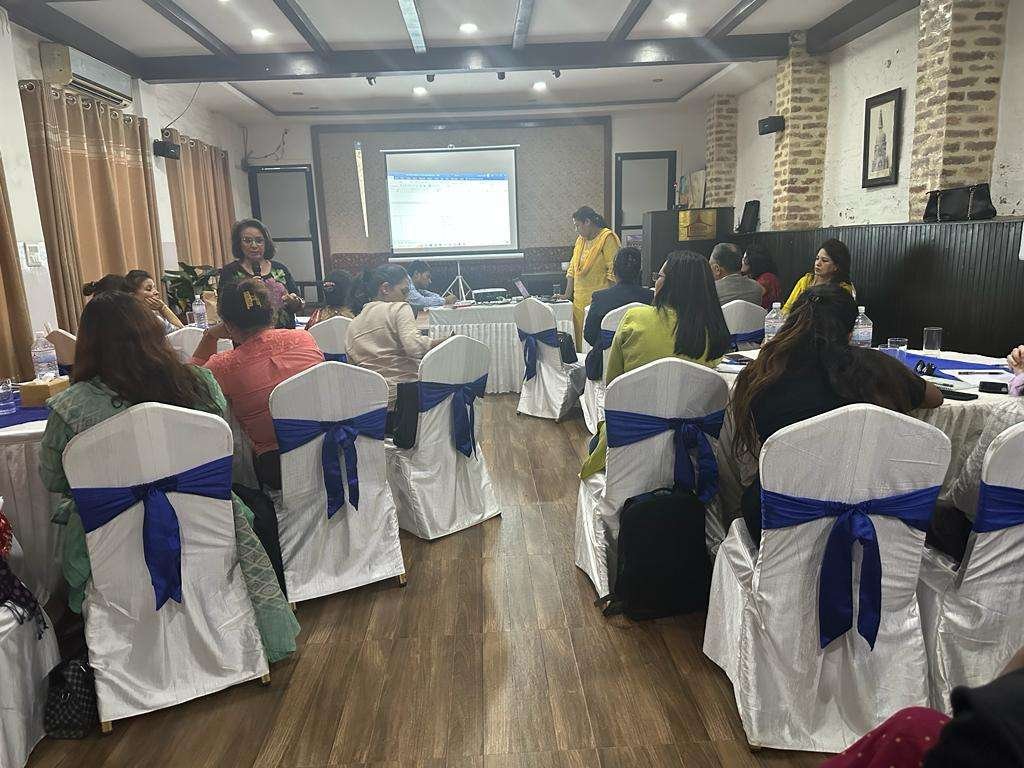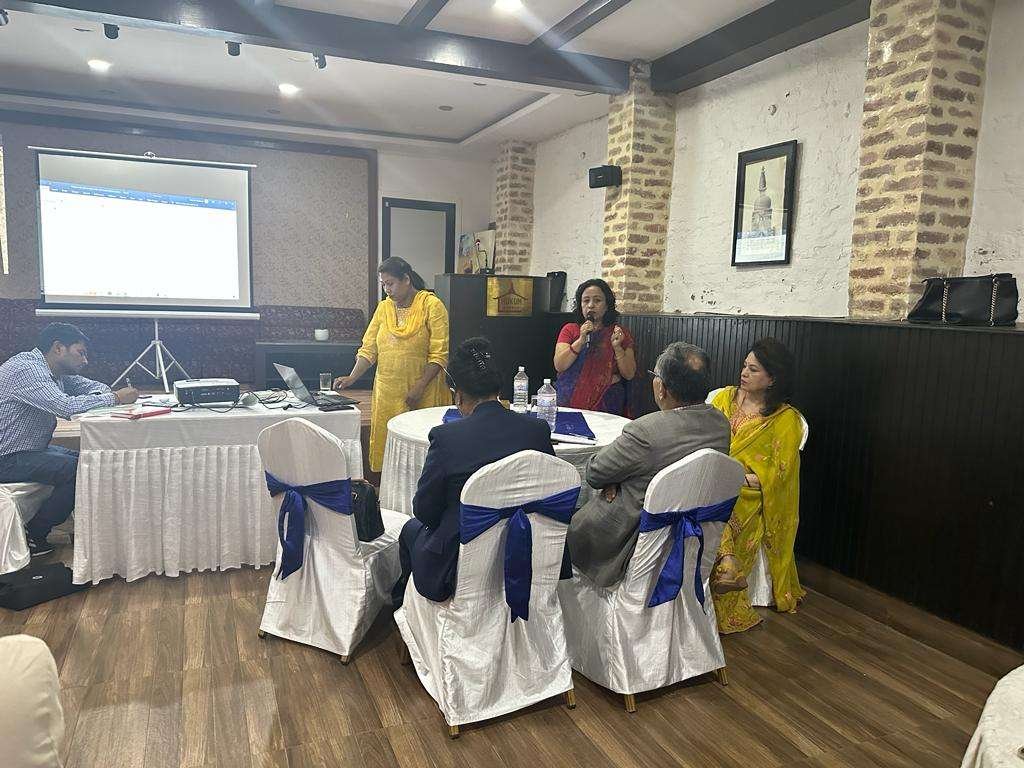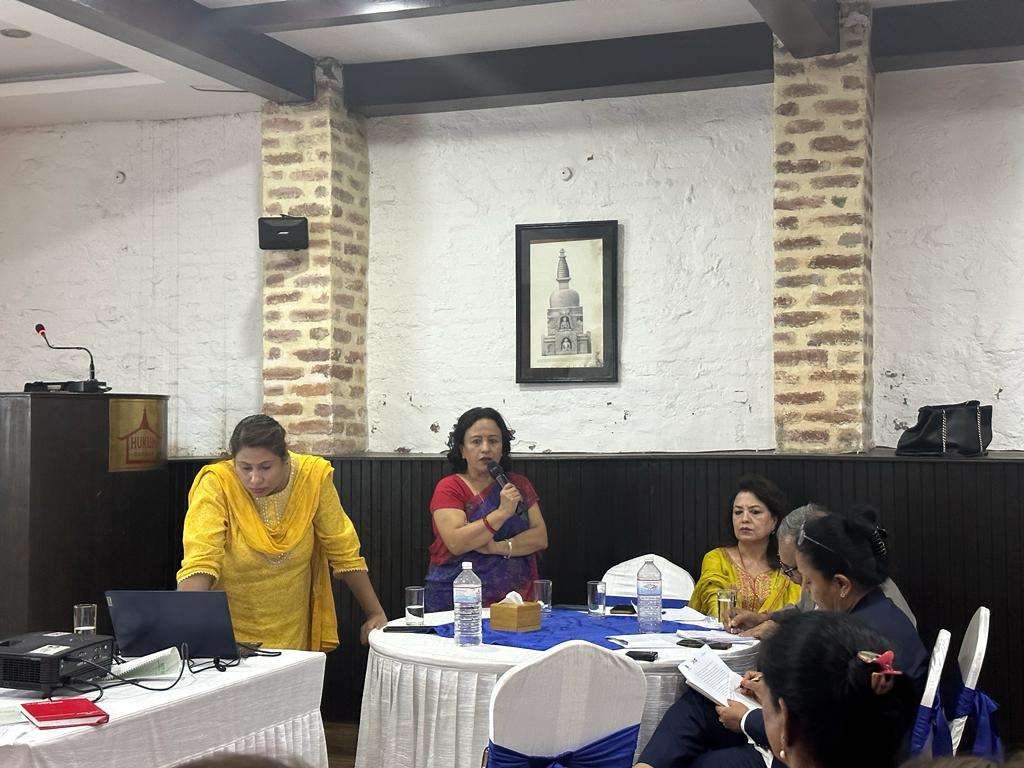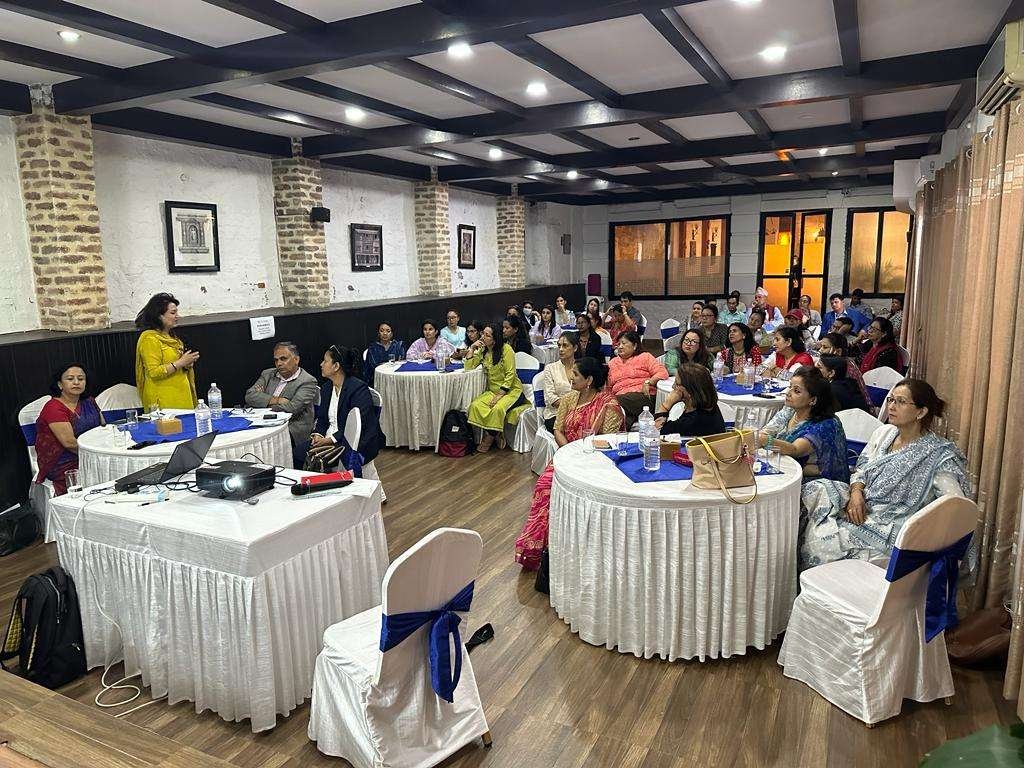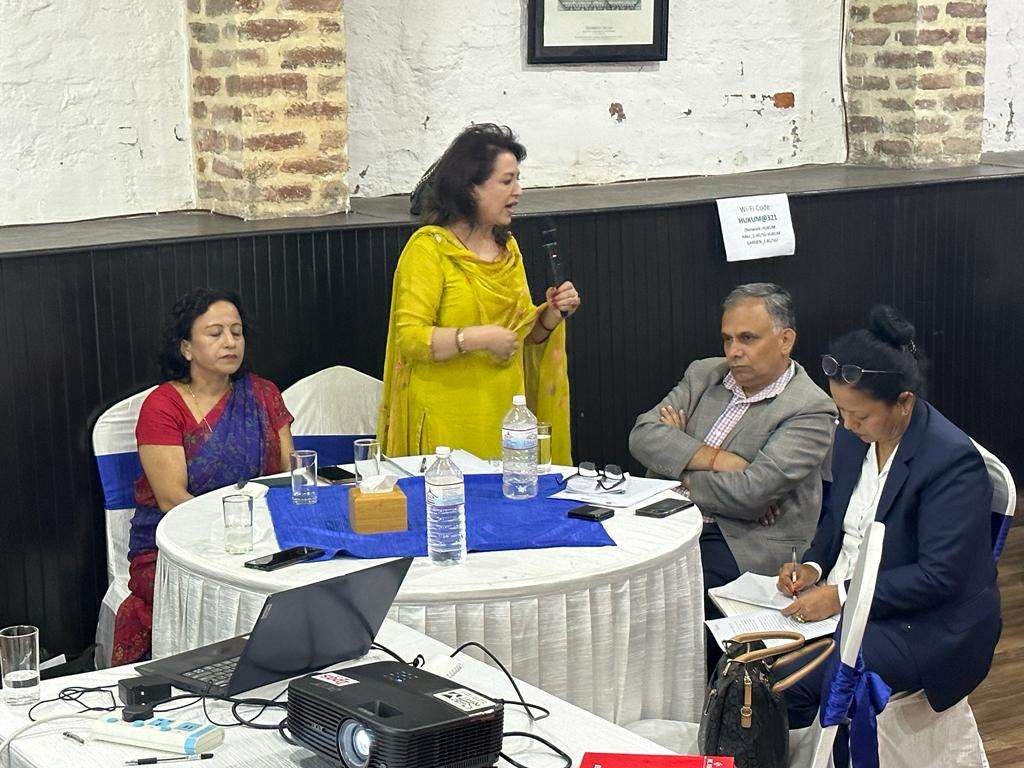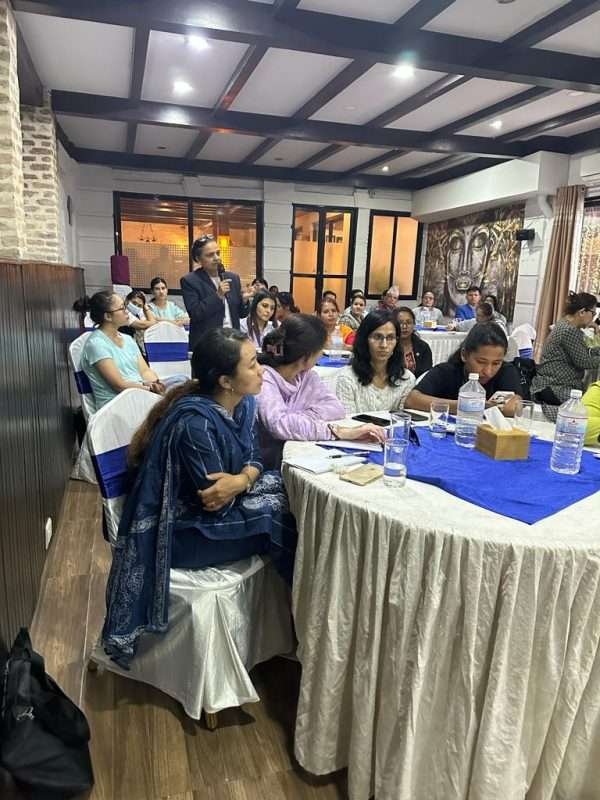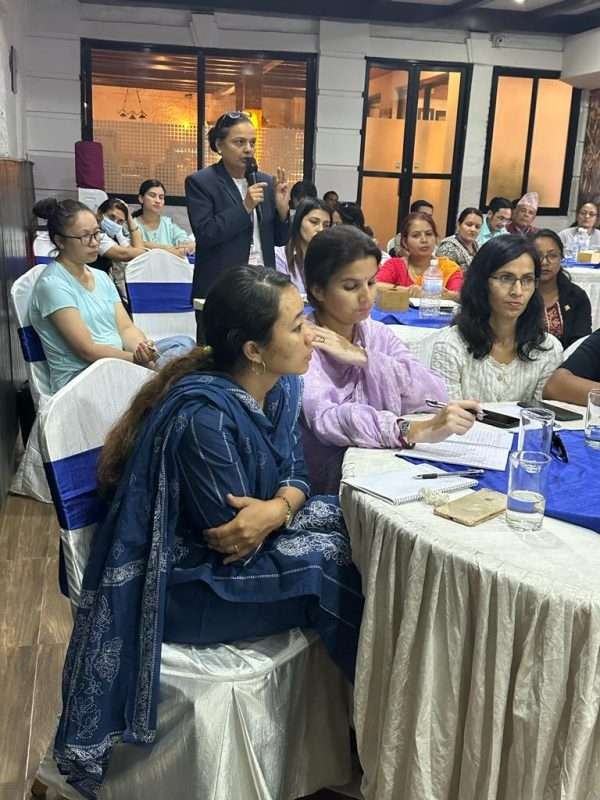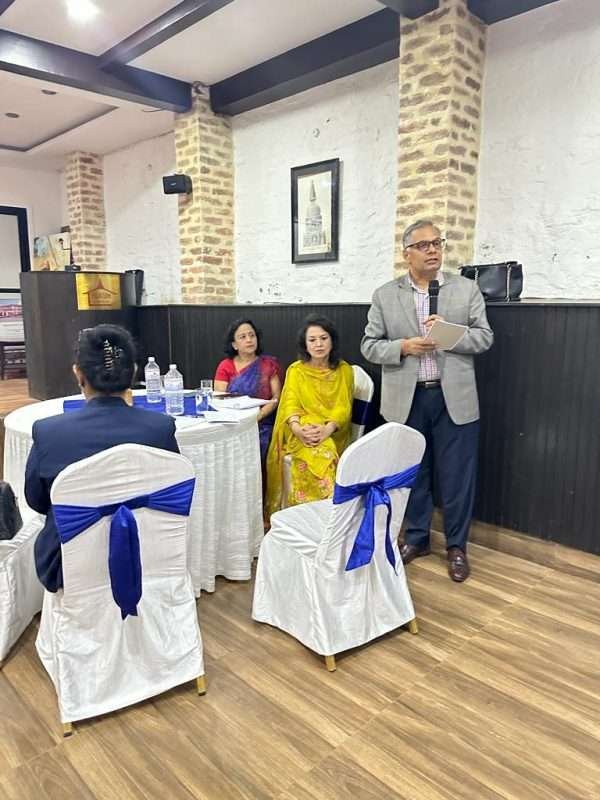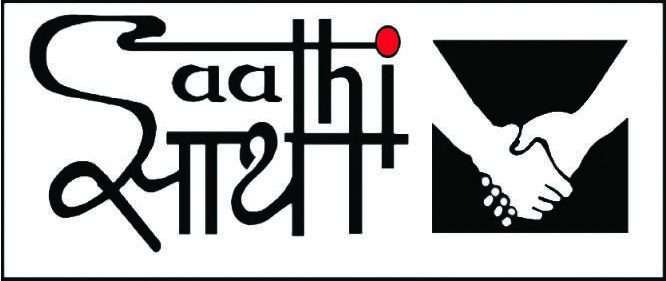KATHMANDU, September 7, 2023 – Saathi, in collaboration with the Ministry of Women, Children, and Senior Citizens (MoWCSC), convened a multi-stakeholder meeting to discuss crucial action plans following the national women’s shelter conference held in June.
The primary objective of the meeting was to strategize and create action plans involving diverse stakeholders to align with the Kathmandu declaration issued during the conference. With a total of 41 participants representing various national and international development organizations, government and non-government agencies, shelter operators, and rights activists, the discussion brought forward several key points.
The discussions revolved around several key aspects of improving services for survivors of gender-based violence (GBV) and women’s shelters. First and foremost, participants emphasized the importance of prioritizing the mapping and quality assessment of shelter services. This assessment is vital for ensuring that survivors receive the highest quality care and support during their stay.
Furthermore, the meeting underlined the significance of government collaboration in the context of shelters. Government was urged to categorize the shelters based on the nature and duration of the service they provide for the survivors.
Addressing the evolving landscape of GBV, the discussion encouraged shelters to bolster their capacity to combat online abuse and tackle new forms of gender-based violence.
Private sector engagement also took center stage during the meeting. Advocacy efforts were discussed to facilitate access to corporate social responsibility funds for GBV prevention and response initiatives. The private sector’s involvement can significantly bolster resources and support for these critical efforts.
Enhancing the safety of survivors emerged as a top priority. The meeting highlighted the need to relocate survivors of sexual and gender-based violence to different locations where they can receive essential services and protection from threats.
At the local government level, participants stressed the importance of establishing well-functioning shelters equipped with comprehensive services. These local shelters can play a pivotal role in providing immediate support to survivors and fostering a safer environment within communities.
To improve service quality, the meeting called for the strengthening of internal referral mechanisms. This step would streamline the process of connecting survivors with the appropriate services and support they need.
Recognizing domestic violence survivors as potential victims of trafficking was another significant focus. This acknowledgment underscored the need for enhanced protection and support systems for survivors to prevent them from falling prey to trafficking networks.
Aligning shelter efforts with the Sustainable Development Goals (SDGs) was also highlighted as an important aspect of their work. Analyzing shelters’ contributions in line with the SDGs can provide a framework for measuring progress and impact in the context of broader development goals.
Ensuring survivors and their dependent children have vital documents such as citizenship and birth registration was considered a government priority. These documents are essential for survivors to access various services and exercise their rights effectively.
Lastly, participants expressed the need to refine the Kathmandu declaration, making it more concise and clear. A clearer declaration can serve as a guiding document for stakeholders and organizations involved in combating GBV and supporting survivors.
Chaired by Suman Raj Aryal, Secretary at MoWCSC, the meeting also featured an update from the ministry on their efforts to centralize shelter data. This initiative aims to improve referral mechanisms and enhance the overall quality of services provided to survivors of gender-based violence.
The stakeholder meeting underscored the commitment of various organizations and agencies to collaborate effectively in the ongoing effort to combat gender-based violence and provide safer spaces for survivors.
